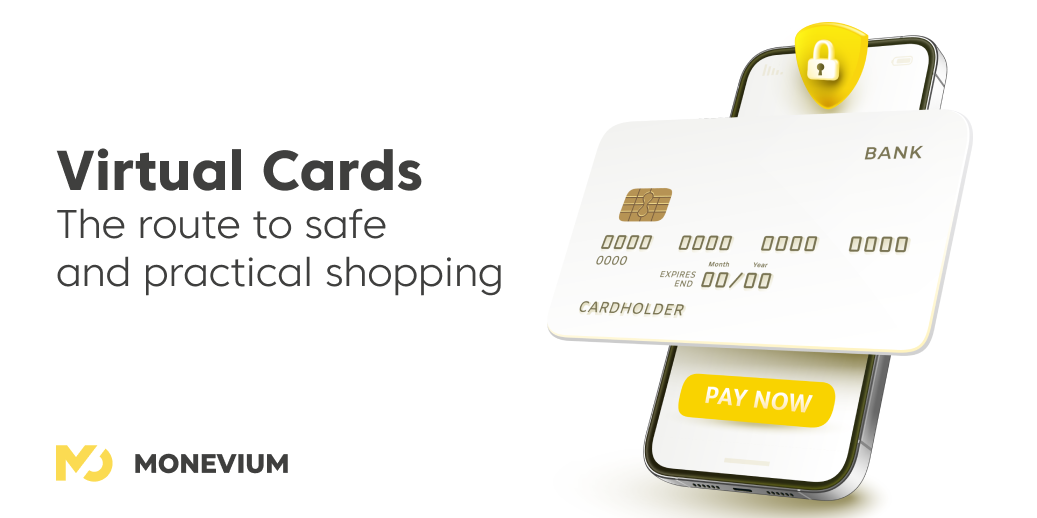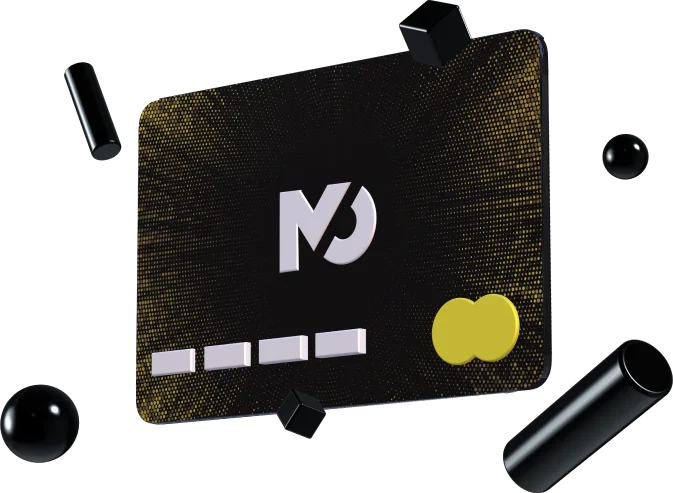Virtual Cards—The route to safe and practical shopping

The speed at which the financial services ecosystem is becoming a fully online business has been increasing rapidly recently.
Going about everyday life without even carrying a physical wallet is now a very accepted norm in many regions of the world, and many routine activities ranging from paying for shopping at the supermarket or paying a bus fare when boarding have morphed rapidly from payment by cash to payment with debit and credit cards, and then away from any physical medium at all.
We live in the age of contactless payments for many items at points of sale, and borderless online shopping with limitless maximum payment limits online. It is entirely possible, for example, to buy a brand-new luxury car online, using the same highly developed merchant services channels as when ordering a food delivery from a favourite restaurant.
With online and contactless payment services, a whole new world has opened up for consumers, regardless of location, in which transactions are now often conducted from the comfort of a living room, and items are brought to consumers rather than consumers having to go and buy items separately from various physical stores, via an automated teller or bank counter to collect cash before doing so.
The entire concept of withdrawing cash from a bank branch and then going to use it in each individual store is becoming a legacy activity to the extent that banks in many European countries are closing down their last remaining high street branches as their entire retail banking business goes fully online.
With the progression away from physical cash toward online and contactless shopping comes another natural progression - the obsolescence of the actual bank card.
Debit and credit cards are often issued as a basis for the contactless system, where a card can be tapped at a point of sale and its internal chip read by a retail merchant terminal, or the unique number sequence on a card can be entered into a company's website in order to purchase online.
The actual card itself, however, is no longer required.
Safety and practicality are central to Monevium's core values, and should be two major considerations in the modern, online world in which financial transactions are now made.
Therefore, Monevium's 'virtual card' fits the modern way of making payments as well as consigns the aging concept of physical debit and credit cards to the history books.
How does it work?
In terms of functionality, the Monevium Virtual Card replicates the functions of a physical card, but hosts all of the debit card details including its 16-digit number, expiry date and CVV security code in a digital, encrypted and secure format and has no physical component at all.
It is a prepaid card and it can be used by Monevium customers to carry out e-commerce transactions, and is generated digitally. Once it is generated, Monevium customers can activate it, making the virtual card usable immediately.
Virtual cards resolve one of the most important security concerns relating to retail consumer activities, that being the possibility of mislaying a physical card which has all of the data printed on it, including the CVV number, to enable anyone who may find (or steal!) the card to make a transaction successfully.
Your safety is our business
With virtual cards, nobody except for the account holder can access them. Even if a mobile phone is stolen from an account holder's pocket or bag, the details of a virtual card cannot be accessed, as the PIN code to enter the phone and facial recognition authentication to access the application would be required, whereas if a physical card is mislaid or stolen from a pocket or a bag, its numbers are written clearly on it and therefore it can be easily used fraudulently.
Whilst on the subject of safety, one of the impracticalities of holding a physical debit or credit card is that in the event of it going astray, a quick call to the bank or card issuer usually is enough to put a 'block' on any transactions that could be carried out fraudulently by a person who may find it and attempt to use it.
This may give good peace of mind, but should the card subsequently be found, the account holder often cannot re-activate a cancelled card and therefore would have to wait a number of days before a new one is issued via mail, itself a very obsolete process.
Virtual cards allow users to begin re-using them immediately if the device on which they are viewed is mislaid and subsequently found, as it is simply a case of reactivating the card electronically and not having to wait for a physical card to arrive.
Clean desk, clear future.
Gone are the days when desks are filled with paper files, and therefore by natural progression, the days of keeping a physical card are gone. Living spaces are becoming increasingly cleanly styled and minimalism is a direct result of the electronic revolution.
With this goes the lack of need to carry plastic cards which are cumbersome as well as being a security liability, and the ability to have instant and convenient access to digitally stored debit card details along with the added security and lack of waiting time which is a bugbear of physical card issue, the future is one of much greater security, ease of use and speed of managing everyday items that require purchasing or paying for.
Monevium's virtual card is therefore the cutting-edge way to manage everyday purchases.
Monevium is the Trading Name of Advanced Wallet Solutions Limited, a company registered in the UK under company number 10251711 and is regulated by the UK’s Financial Conduct Authority under Firm Reference Number 766038.
Open Monevium Account in Minutes
The future of money management is only a few clicks away. Apply here to have complete control over your money.


